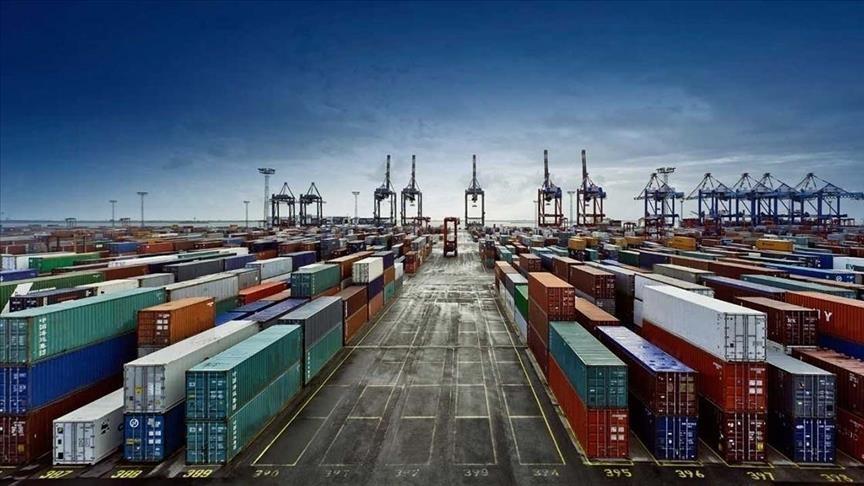Africa-Press – Mozambique. As global trade tensions rise, export controls have become a powerful new tool in geopolitical rivalry, limiting the movement of critical technologies, materials and services across borders in a push to prioritize domestic industries and exert political leverage.
Countries are increasingly imposing restrictions on exports of sensitive goods such as semiconductors, artificial intelligence (AI) components, quantum computing systems and military-grade materials.
While traditionally framed as national security measures, these controls are now being used as strategic weapons in ongoing tech and trade wars.
“Export controls have been used as offensive weapons intended to degrade strategic competitors’ abilities to advance military modernization for the last several years,” Emily Benson, head of strategy at US-based Minerva Technology Futures, told Anadolu.
“What is new currently is the direct attachment of export controls to trade negotiations,” she said.
The latest example came after US President Donald Trump announced sweeping reciprocal tariffs on April 2 targeting China. In response, Beijing suspended exports of rare earths and related magnets — a move that caused major supply shortages in Europe’s auto industry, particularly affecting BMW and Mercedes-Benz.
China controls around 70% of global rare earth production and 90% of global rare earth refining capacity, though only 34% of reserves are within its borders.
That dominance remains a key strategic advantage as demand for rare earth elements is expected to rise 50%-60% by 2040, according to the International Energy Agency, driven by the growth of digital technologies, AI and green energy transitions.
A temporary rare earth agreement reached between the US and China on June 11 provided limited relief but did not resolve broader concerns about long-term access to critical materials.
Japan’s diversification strategy
Japan has been working for over a decade to reduce its reliance on Chinese rare earths.
Following a 2010 suspension of rare earth exports by Beijing during a diplomatic dispute, Tokyo launched a multi-pronged strategy through the Japan Organization for Metals and Energy Security (Jogmec), investing more than $600 million in over 100 overseas projects.
Jogmec’s 2011 partnership with Australian firm Lynas Rare Earths created the world’s largest rare earth producer outside China, which now supplies roughly one-third of Japan’s rare earth imports.
Japan has also turned to urban mining — extracting rare earths from electronic waste — and aims to establish 180-day reserves for key raw materials. Tokyo also plans to invest $1.5 billion in deep-sea mining by 2028.
Innovation is also playing a role. Honda has developed neodymium magnets for hybrid vehicles that do not require heavy rare earths, while Japan’s energy sector is investing $1.5 billion in perovskite solar cells to replace traditional silicon panels, with the goal of achieving capacity equal to 20 nuclear plants by 2040.
‘Shifting landscape’ for global firms
Export controls are reshaping business strategy worldwide.
“Companies continue to contend with a shifting landscape,” said Benson. “This represents the use of export controls as a new form of leverage to seek concessions elsewhere.”
She cited Nvidia’s remarks that relaxed export rules to China could provide a strategic advantage to US firms.
“Other companies have been less vocal, likely favoring a ‘wait-and-see’ approach as the US-China trade relationship continues to evolve,” she said.
Benson noted that current policy still allows sophisticated exports, as long as they are not used for military purposes — a condition likely to remain. But that could change if more countries start producing dual-use AI technologies.
Strategic outlook
Mehmet Alpertunga Avci, a visiting scholar at the Vienna University of Economics and Business, said countries with rare earth processing capacity have a growing advantage over those relying on outdated protectionist measures.
“Technologically underdeveloped countries without rare earth elements should consider options like focusing on technologies requiring the least rare earth elements possible, trying to enter into trade-facilitating deals with exporting countries, establishing tech transfer–based industrial clusters and introducing import tax incentives,” he said.
He warned that rare earth-rich and tech-dominant countries may “seek to expand control by limiting production, tying exports to certification standards and building vertically integrated supply chains.”
“These mutually exclusionary strategies will escalate global competition over rare earths,” he added, “making national policies more aggressive in the race for technological and economic dominance.”
For More News And Analysis About Mozambique Follow Africa-Press






